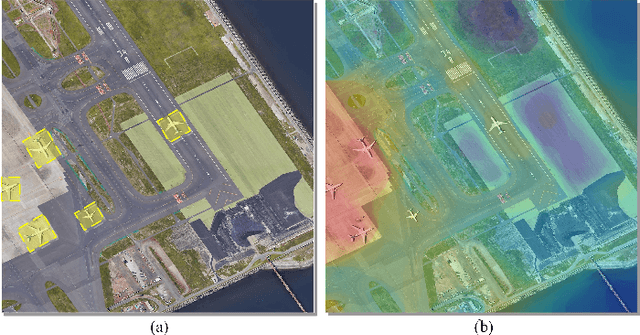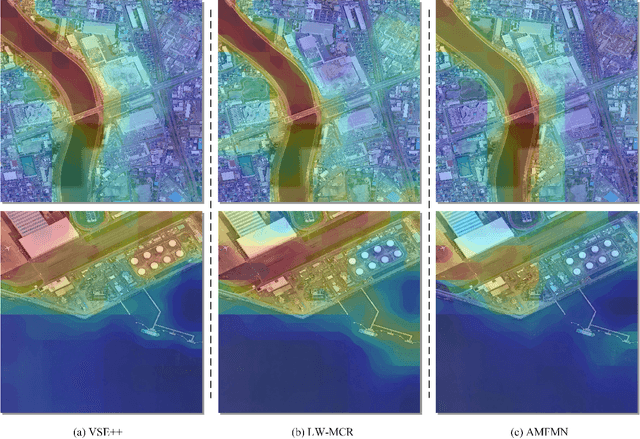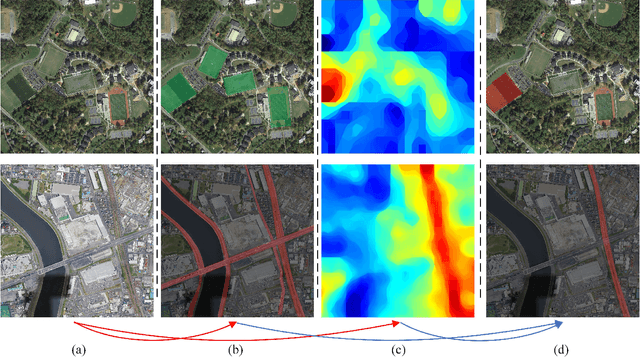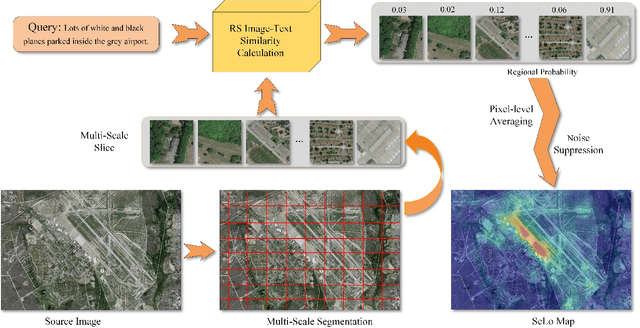Learning to Evaluate Performance of Multi-modal Semantic Localization
Paper and Code
Sep 19, 2022



Semantic localization (SeLo) refers to the task of obtaining the most relevant locations in large-scale remote sensing (RS) images using semantic information such as text. As an emerging task based on cross-modal retrieval, SeLo achieves semantic-level retrieval with only caption-level annotation, which demonstrates its great potential in unifying downstream tasks. Although SeLo has been carried out successively, but there is currently no work has systematically explores and analyzes this urgent direction. In this paper, we thoroughly study this field and provide a complete benchmark in terms of metrics and testdata to advance the SeLo task. Firstly, based on the characteristics of this task, we propose multiple discriminative evaluation metrics to quantify the performance of the SeLo task. The devised significant area proportion, attention shift distance, and discrete attention distance are utilized to evaluate the generated SeLo map from pixel-level and region-level. Next, to provide standard evaluation data for the SeLo task, we contribute a diverse, multi-semantic, multi-objective Semantic Localization Testset (AIR-SLT). AIR-SLT consists of 22 large-scale RS images and 59 test cases with different semantics, which aims to provide a comprehensive evaluations for retrieval models. Finally, we analyze the SeLo performance of RS cross-modal retrieval models in detail, explore the impact of different variables on this task, and provide a complete benchmark for the SeLo task. We have also established a new paradigm for RS referring expression comprehension, and demonstrated the great advantage of SeLo in semantics through combining it with tasks such as detection and road extraction. The proposed evaluation metrics, semantic localization testsets, and corresponding scripts have been open to access at github.com/xiaoyuan1996/SemanticLocalizationMetrics .
 Add to Chrome
Add to Chrome Add to Firefox
Add to Firefox Add to Edge
Add to Edge